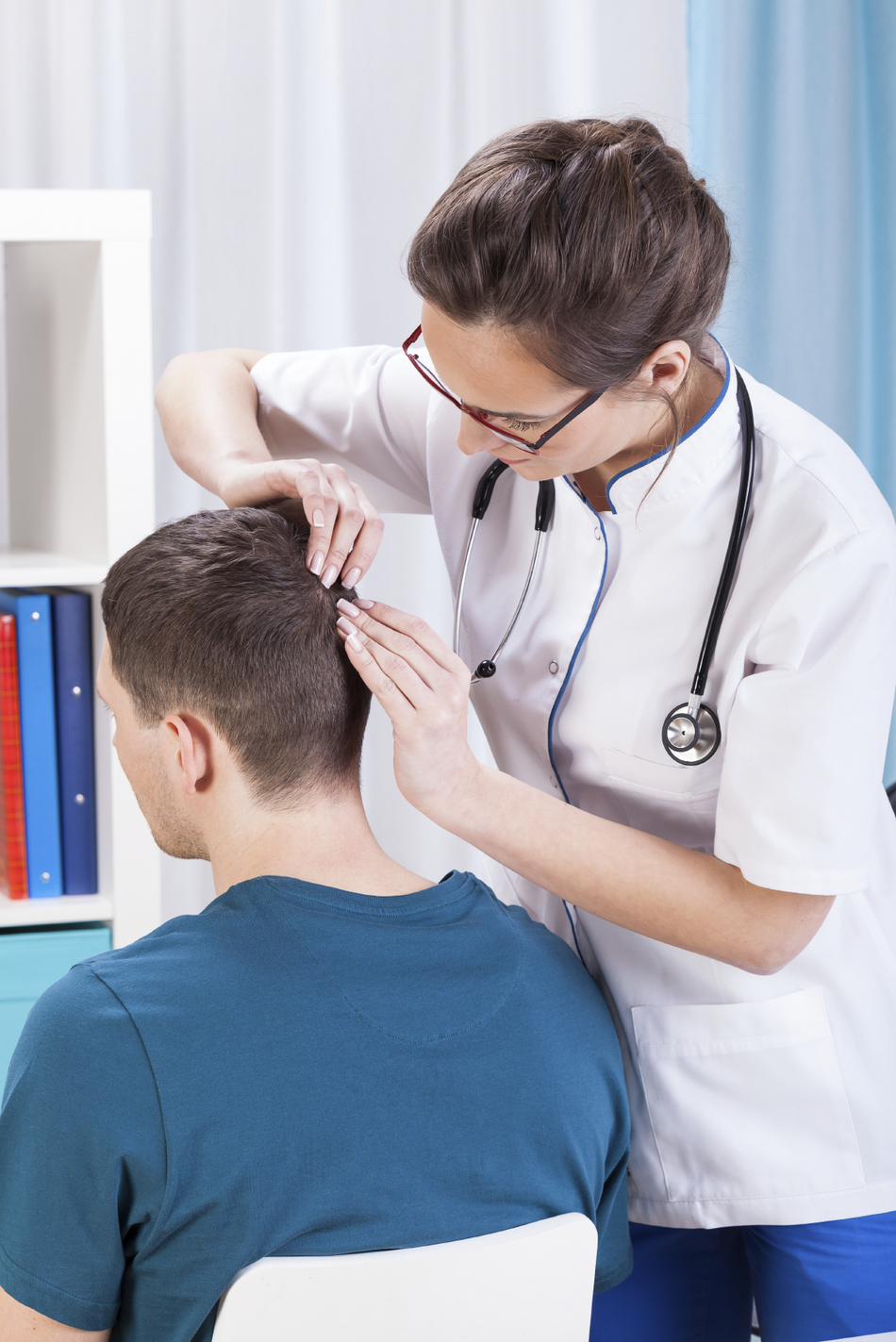
Interviewer: Going to find out what to expect when you go to the University of Utah orthopedic center concussion clinic. That's next on The Scope.
Announcer: We're your daily dose of science, conversation, medicine. This is The Scope, the University of Utah's Health Sciences Radio.
Interviewer: Let's say something happened to somebody that led to a concussion, whether it's playing football or skiing and took a nasty fall, or maybe even an accident. I've gone to my primary care physician or it's pretty clear that I do have a concussion, and I make an appointment with the concussion clinic. What should I expect after walking in the door?
Dr. Hansen: You'll be evaluated by a specialist in traumatic brain injury. As far as what the evaluation entails it will include a comprehensive look at what types of symptoms you are experiencing, what were the circumstances of the injury, what other medical problems do you have that could contribute in some way to the symptoms you're experiencing. For example, if somebody has a chronic headache disorder already and then they have a head injury, that certainly can affect how they experience their headaches, for example.
We'll want to find out if they've had head injuries before and if so, how did they occur, what was the recovery pattern. Beyond that history gathering, we'll perform a physical examination that looks at a good balance assessment. We know that that is often affected after a head injury. A general neurologic examination which is typically normal. Then, an assessment of how your eyes and vestibular system are working together and maybe provoking or aggravating symptoms.
Those are the main components of our physical exam. Depending on the circumstances there may be other supplementary tests that we do. The ultimate goal is to document what might be aggravating symptoms, what maybe is not back to normal, because in the case of athletes or people who are wishing to return to sports, or otherwise potentially risky activities, it's really important to make sure that you're "100%" before going back out into harms way.
Interviewer: So a lot of basic tests, a lot of questions, some balance tests, but what about some sort of a brain scan?
Dr. Hansen: Brain scans typically aren't very revealing. If you have a severe injury and show acute signs or symptoms that there might be a more serious problem in the brain, people with those sorts of issues usually end up in the emergency room and those appropriate scans are done at that time.
Interviewer: So imaging is not something that you normally would do there at the concussion clinic.
Dr. Hansen: Not typically. Certainly if the story doesn't add up or we're concerned about something else, but I guess I would say that imaging tests don't diagnose a concussion.
Interviewer: What kind of questions should the patient be asking when they're in the clinic? Is there anything in particular they should be actively doing?
Dr. Hansen: If I could put myself in a patient's shoes or in a parent's shoes, and certainly I'm a parent, how do I know when it's safe to go back and play such and such a sport? Or if I'm having symptoms that aren't going away, what can we do about it? It's a tricky process to navigate.
One of the big things that we try to tackle in our clinic is providing adequate education into how to manage this, and adequate support they can then take back to their work environment, their school environment, their coach, or whatever so that they can educate them on what's the right things to do or not to do to help facilitate getting better.
Interviewer: What are some of the treatment options that you might give a patient after they've come in and you've done the diagnosis? You mentioned medications could be one.
Dr. Hansen: Most of medical management of concussion is geared towards symptom management. There's not a pill that cures a concussion. Medications have a role. There are times when the best medicine is just education and helping them understand the right balance between rest and activity, how to scale things back, and how to tailor their daily activities to facilitate recovery. Sometimes we'll get rehabilitative therapies involved, physical therapy if somebody is struggling with a lot of dizziness or vertigo, or even a lot of neck pain sometimes coincides with their concussion.
Interviewer: If I got a concussion it sounds like rest . . . is rest a big part of it? I guess what I'm saying is instead of coming in, why don't I just rest for a few days?
Dr. Hansen: Sometimes that is the trick. We know that about 50% of concussions will spontaneously get better on their own without doing anything particularly special. The important thing in those situations is just making sure that you're not getting back into harms way too soon.
There are however cases research would suggest probably in the ballpark of 20% of patients may still be having problems even a month out from their injury. Continuing to just rest and do nothing there gets to be a point of diminishing returns I guess I would say where that's not helpful and you need to figure out how to balance the right amount of rest with the right amount of activity.
Interviewer: Certainly somebody in that particular category is somebody that you would want to see, if a month has gone by and they've still got symptoms.
Dr. Hansen: Absolutely, yeah. Some guidelines would even argue that anything beyond two weeks may merit a specialist evaluation.
Interviewer: It sounds like if somebody has had no history of having concussions, and has received one, resting for a few days would be fine. They probably don't need to come into the clinic unless those symptoms persist.
Dr. Hansen: Yeah, they probably don't need to come into necessarily our clinic, but it is super important to check in with a healthcare provider.
Announcer: The ScopeRadio.com is the University of Utah Health Sciences Radio. If you like what you heard, be sure to get our latest content by following us on Facebook. Just click on the Facebook icon at TheScopeRadio.com.





